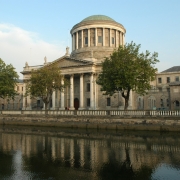SUPREME COURT DELIVER JUDGEMENT IN P -v- MINISTER FOR JUSTICE AND EQUALITY [2019] IESC 47
An important judgement has been delivered by the Supreme Court in the case of P -v- Minister for Justice and Equality [2019] IESC 47.
The Courts highlighted that this is a difficult and novel area of law. O’Donnell J in his judgement noted: “this is a very difficult area, with competing considerations, an absence of legislative structure, and little by way of guidance from the decided cases.”
The applicant in his proceedings contended that the reasons provided to him in the refusal of his application for naturalisation remained insufficient and that it ought to have been possible for the Minister to offer to provide “the gist” of the information relied upon.
The applicant contended that if necessary, a special advocate procedure ought to have been adopted.
There is a special advocate procedure in place in other common law countries, most notably the United Kingdom, Canada, and New Zealand, which are now the subject of detailed procedures providing for the appointment of a special advocate, and what are described as closed material hearings.
Two judgements were issued in this matter, by Mr Justice Clarke C.J. and Mr Justice O’Donnell which reach the same conclusion on slightly different legal bases.
Clarke C.J.’s judgement found that it is possible to put in place an “enhanced process” by which an “independent assessment” could be made, “as to whether any version of the information could be provided in a way which would not affect State interests to the extent that disclosure should not be required at all”.
Clarke C.J. also noted that such a process of advice from an independent person would also enhance confidence in any decision made.
O’Donnell J’s discusses “special advocate procedures” stating:
“During these procedures decision-makers, and sometimes courts will consider material and hear evidence which is not provided to the individual or the advocate of his or her choice, but where the individual is represented by a special advocate with security clearance who cannot, however, communicate the substance of the information disclosed to the individual or seek instructions upon it.”
There is currently no provision for such procedures in Ireland.
In his judgment O’Donnell J found that the case of Mallak v. Minister for Justice [2012] IESC 59, [2012] 3 I.R. 297, a case which strongly affirmed the “duty to give reasons” did not govern this particular case.
O Donnell J held that the issue in this particular case was:
“(i) what by way of fair procedures is required where it is said that the basis for the refusal of citizenship is contained in information which cannot be disclosed by way of reasons for the decision, and
(ii) if it is possible to justify the refusal to give reasons, what is required by way of fair procedures to constitute such justification, so that a decision which did not provide reasons, would nevertheless be valid and not liable to be quashed?”
O’ Donnell J found that if national security concerns are properly raised, it cannot be the case that merely by seeking a decision, an interested party can demand access to information, the confidentiality of which is deemed essential to national security. The judge also highlighted, however that it must be recognised that fundamental issues are involved in this case- that a person can be the subject of an adverse decision on a matter of significance to them based upon materials not disclosed to them, and where the reasons for that decision are similarly withheld from them.
The judge referred to a case of the UK courts, R. (Haralambous) v. St. Alban’s Crown Court [2018] UKSC 1, [2018] A.C. 236, in that case, the restrictions on providing the gist of material occurred after there had been a limited closed materials procedure in which the information concerned was subject to some scrutiny independent of the state.
We welcome the Supreme Court’s determination in this case and hope that an “enhanced process” or “special advocate procedure” is introduced by the Minister as soon as possible. An application for citizenship is a hugely important matter for an applicant, who has made their home in Ireland. A fair and balanced system with an element of independence is to be welcomed and will assist both the applicant and the Minister to deal with these particular matters.
The full judgement of O’Donnell J. can be read here and the full judgement of Clarke C.J. can be read here.

